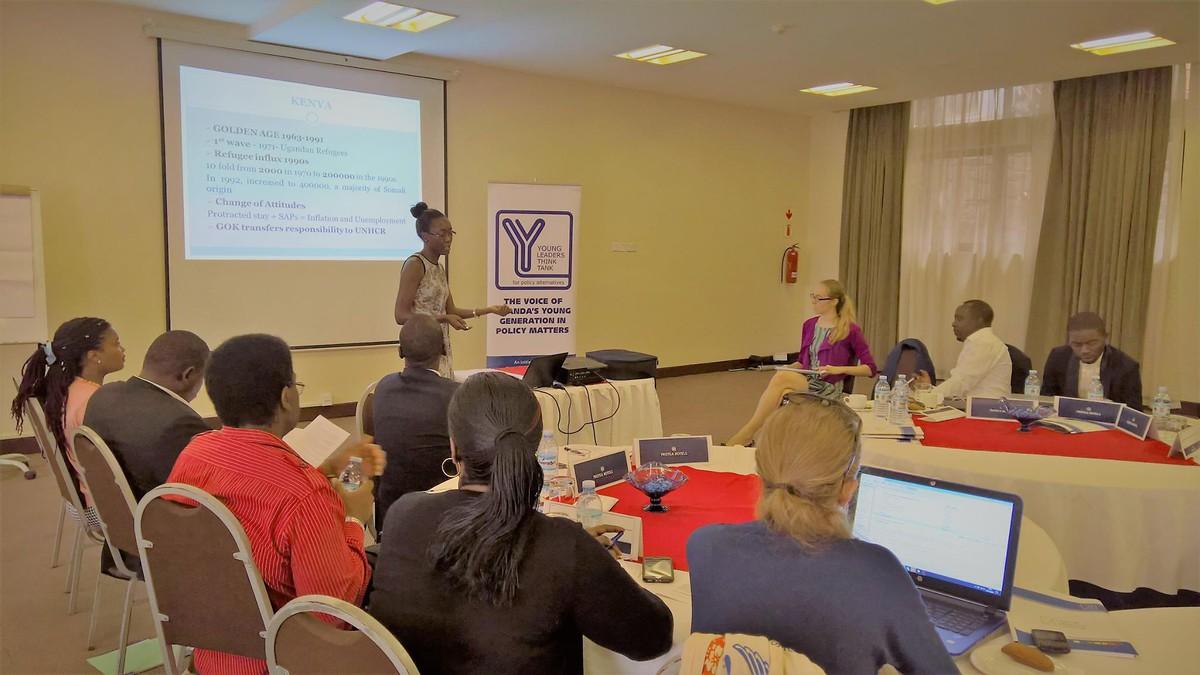BETWEEN INTEGRATION AND REPATRIATION: SUSTAINABLE REFUGEE POLICY IN UGANDA - Foundation Office Uganda and South Sudan
Event Reports
Experts and Think Tank participants controversially discussed the role of Uganda in sustainable refugee policy and management in the context of demographic change, landrights, cultural composition and security issues. To get a more nuanced perspective, members of the Think Tank prepared a presentation on the long history of refugee influx and management in the EAC. Alongside Uganda, the case studies of Kenya and Tanzania illustrated how the single nation-states differ in law and policies to address their individual challenges. While Uganda’s policies are based on the assumption that each migrant should be empowered to make his/her own self-determined and productive livelihood and is given a plot for farming and relative freedom of movement Kenya has a far more restrictive policy in order to deal with the threat of terror from the bordering state of Somalia.
Despite Uganda’s liberal approach towards forced migration the intense debate following the participants input revealed some eligible doubts towards sustainability of Ugandan refugee policies. Particularly issues of security, integration of migrants into already strained economy, as well as the conflict on landrights in a swift growing society in which fertile land becomes a scarce resource were discussed. It should also be noted that, despite self-sufficiency strategies, Uganda does not place the possibility of long-term integration as a political priority, and places the focus on repatriation despite the long-term dynamics of the surrounding conflicts. Other issues were transparency and the lack of empirical data particularly concerning the situation of women in migrant settlements as well as new innovations and strategies towards a more nuanced utilization of migrants potentials which are not necessarily found in farming. More effective education programs especially mediating language skills could be a key component to uncover existing human resources and to benefit from integration instead of just tolerating refugees as encumbering burden. In particular, the relationship between refugees and the regional population who live under very similar conditions but do not always receive equivalent support will remain an important issue in order to make a lasting positive contribution to refugee integration.
The intense roundtable was closed by a concluding statement of Bernard Mukhone, program manager at the Konrad-Adenauer-Stiftung, and each participant. The following lunch gave the opportunity for personal and further conversation.



